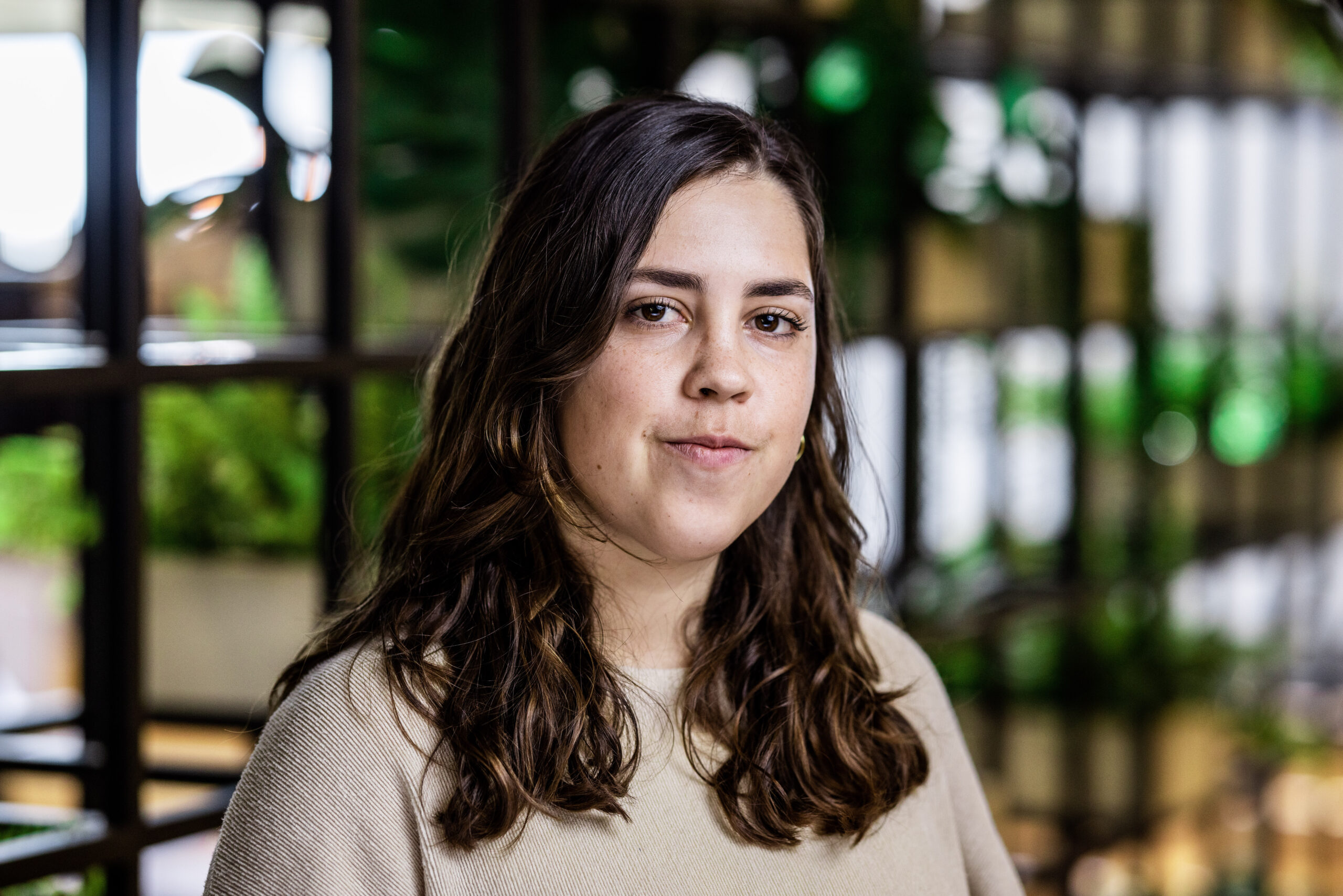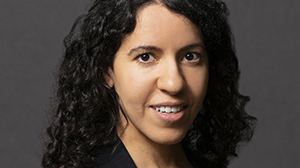Anna Savchenko grew up in a country with a restricted press. When she came to the United States as an undergraduate to study literature, she was not aware U.S. colleges and universities had their own newspapers — much less ones where students could challenge the school’s policies or even the country’s leaders. She was eager to participate and wrote frequently for the school paper at both the University of Buffalo and Azusa Pacific University while also acting as editor in chief for the college magazine. Savchenko became a Poynter-Koch Media and Journalism Fellow in the 2021-2022 class after receiving her master’s degree from Azusa Pacific University and worked for WBEZ, Chicago’s NPR station. We talked to Savchenko about her time in the fellowship and how it helped her hone the skills to chase accountability and cover war from afar.
POYNTER-KOCH: Can you tell me when you discovered your aptitude for journalism and, then, what led you to the fellowship?
SAVCHENKO: I’m Ukrainian, but was raised in Cyprus. Where I grew up, the press is aligned with the government and there are no college newspapers. I didn’t even think something like that was real. Then I came to the United States and there was the school newspaper — and anyone could write for it! I volunteered. After that experience, I never really questioned my purpose. I wanted to be a journalist. For me, journalism is about providing people with information to improve their lives. It’s about reducing suffering by elevating people’s voices.
Unfortunately, it’s difficult for international students to find U.S. employment, and it’s even harder as a journalist. There just aren’t many visa opportunities. When I heard about the fellowship — that it would help me find a place to work and help pay my salary — I thought it was too good to be true. But it wasn’t. It was life-changing. I wouldn’t have been able to fulfill my dream of being a journalist in the United States without the fellowship. WBEZ has continued to sponsor my visa even now, but I don’t think I would have gotten in the door without the fellowship.
The Poynter-Koch fellowship digs deep into how Americans can defend the free press and our right to question power. You grew up in a country where those freedoms are severely restricted. How does that experience shape how you feel about your role as a journalist?
In Cyprus, nobody trusts the media, so no one actually engages with the news. It’s difficult to find out what the truth is. Distrust of the media in the United States is high, and, sadly, I would say it feels similar to what I experienced in Cyprus. The difference, of course, is that the press is free here. We have the power to reverse peoples’ distrust by reporting responsibly, truthfully and with compassion. We can change perception by upholding the values of our profession.
That’s fascinating. Can you tell me some of the skills you learned or principles you talked about in the fellowship that might help you, as a reporter, restore trust?
The fellowship is so empowering because it gives you the baseline skills you need to become a professional in this industry. We talked about ethics, how to navigate tricky situations, how to talk to sources and how to treat sources with dignity. There was one course in particular,, on trauma-informed reporting that taught us how to talk to people who have directly experienced trauma. As reporters, we’re some of the first people to get to talk to people affected by war and violence. We are on the frontlines, and the way we speak to these sources is important. By being compassionate and respectful, while still going after a story, we build trust in the communities we cover. We also heard from a lot of seasoned journalists on this topic. They talked about their approach and how to be more engagement oriented. That means answering sources’ questions about why you’re there and what you’re doing, before you ask your own questions. That information was helpful.
These tools, especially treating sources with compassion and dignity, became useful to you pretty quickly. You were in the fellowship when the war in Ukraine started and when you began to cover it for WBEZ. Can you tell me about that experience and how the fellowship helped you navigate it?
I was a higher education reporter when the war started. Nearly overnight, my job became reporting on how Chicago’s large Ukrainian community was responding to the war. All the themes we discussed in the fellowship — like how to talk to people who are traumatized and scared — were tools I needed every day. My colleagues and mentor in the fellowship were incredibly helpful during this time. I had never covered war before, even from a distance, and they encouraged me to produce some really powerful stories about how Ukrainians living in the United States were dealing with the violence happening in their country. I’ve only worked in this industry for two years, but this year I won two awards for work I produced while covering the war in Ukraine.
Wow! What were the stories — and what were the awards?
I won a Public Media Journalists Association Award in commentary and a regional Edward R. Murrow Award in feature reporting. The first two journalism awards of my career!
Both were for a story I produced about my own experience of the war. My father was in Kyiv when the war started. I was in Chicago. I recorded the conversations we had over the phone as he fled the country with my aunt and uncle. The idea came from my mentor, Alex Laughlin, a fantastic audio producer and writer who always encouraged me to record, record, record. Alex has lots of talents, but one of them is being able to incorporate her own experiences into her work. She helped me learn how to report on something that was important globally, but also personally meaningful to me.
I know your innovation project also had something to do with telling difficult stories with dignity. Can you tell me about it?
Sure. I started this project before I transitioned away from higher ed reporting. One of the first stories I did at WBEZ looked at how students were turning to social media to combat sexual misconduct and violence. At Northwestern University, there had been several reports of sexual misconduct within the school’s fraternity and sorority system in just the few months since I’d started my job. I wanted to create a digital space where students could have safe, but meaningful conversations about their own experiences in fraternities and sororities and their experiences with sexual assault. WBEZ supported the project, but, unfortunately, it didn’t get off the ground because I then needed to focus on coverage of the war.
Being a reporter, particularly one reporting on war and violence, is taxing. How did the Poynter-Koch fellowship address the pressures you will face as a journalist and give you the skills you’ll need to continue to thrive in your job?
There are a number of factors pushing journalists to leave the industry, and one of them is burnout. As reporters, we need to learn how to protect ourselves so we can do meaningful work. So, one theme of the fellowship is work-life balance. During college, I had this romanticized idea of what journalism was — that it was meant to be all consuming and that I would need to sacrifice my personal life, and maybe even my own well-being, to do this job. As a result, I didn’t know how to create boundaries with my employers or how to protect my time. But my mentor, Alex, and journalists who spoke to us showed me that it is possible to be an expert in your field, and also be happy.


